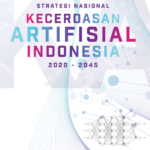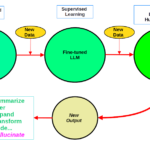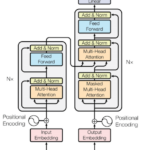For the last few months, OCHA has been developing the idea of launching a humanitarian data lab (or hub) which it sees as an expansion of the work that has been undertaken for several years now, IRIN included. The latest concept note was shared last week a few days before the conference call that took place last Friday morning. The idea has evolved and now OCHA is planning to do at least two national pilots, in Nairobi and Bogotá respectively.
Below are the comments I shared in writing some of which I repeated during the call.
1. The proposal looks great and is certainly a step ahead of others that I have seen in the past in the midst of the so-called data revolution. I
particularly liked the approach of going local which has the potential of ensuring both sustainability in the long term and local ownership if
addressed properly.
2. Technically speaking, the proposal is also on target and does address core issues such as standards, interoperability and use of Open
Source Software, something which we have been supporting in UNDP since the early 1990s (before it was actually called Open Source!).
3. In terms of data itself, the proposal could be strengthened a bit if it could spell out exactly what is humanitarian data. As you might know,
the post2015 HLP has addressed the issue of development data, that is data that can be used by government and stakeholders to make evidence
based decisions and policies, redirect public investment and tackle key development priorities. Moreover, there are already proposals flying all
around on how to do this a the national level. I think there is a connection between these two and the proposal should at least mention
this as, in the end, for most developing countries any piece of data is in fact relevant, given where they are today.
4. In terms of governance, I read that plans for setting a global governance structure are in place and depicted in one of the nice charts
that the proposal presents. It seems that this is not quite the case for the local level where a call for partnerships (the more the merrier)
seems to be leading the process, based on UNICEF’s experience. I think there is the larger issue of national ownership here, national ownership
understood to be more than just governments and instead focused on a multi-stakeholder model. Here, the key is to have local partners who in
fact own the initiative, see it as relevant to them and can carry the work on their own even if for some reason the UN cannot continue to
support it financially and otherwise. There is thus need to spread ownership at the local level on a demand driven basis. By the same
token, local actors should also be able to participate from the very beginning in the overall process. By addressing ownership, responding to
local demand and ensuring participation of local actors from the start we are in fact putting in place the building blocks for long term
sustainability.
5. The other issue here is the ownership of the data itself. Who in the end owns the data if most of the data is in fact local in nature? What
is the role if any of National Statistical Offices? Are there any issues related to privacy and confidentiality? etc. I think these questions are
very relevant once we start to go local and we thus need to have adequate answers.
6. In the case of Kenya, and Nairobi in particular, there are already many efforts and labs in place. As you are aware, Nairobi is an
innovation hotbed and you will find plenty of social innovators, innovation labs, small private enterprises working on this. So having
the data lab in Nairobi is perfect but on the other hand there is clear need to have a clear engagement and partnership strategy in place to
ensure the process goes smoothly and we can get the best of the best for the job on a competitive basis. We have done plenty of work in Nairobi
and have good contacts there, including in government.
After the call was over and the discussions became more tangible I shared additional inputs with OCHA:
- Please note that my interventions were to intended to discourage you from doing a pilot in Nairobi. On the contrary, if you see my written
comments I think it is an ideal location provided we can factor in local context and nuances. - Kenya for example was the first developing country to launch an open data portal and is now, as you know, an innovation hotbed. So they do
have some expertise on data and innovation which the project should capitalize on. On the other hand, most certainly they do not want to
hear about “yet another innovation lab”. That much I have heard from them quite a few times. - I think it is important to separate the institutional figure of the project from it core objectives. As I see it, the real value added of
your proposal in not the LAB part but the data one. Most developing countries are still in the process of producing data, data which does
not event exist for many sectors. It has thus to be created before we can used it for any purpose. This for sure demand some innovations which
in the case of Kenya we might actually found on the ground. - One concrete suggestion for the Nairobi pilot could be to map all the current innovation and data players to then make a decision on what
exactly is needed on the ground.If for example we can identify one of the existing labs as a potential host then it will be clear to all what
exactly is the mandate and objective of HDX which, as I said before, is a brilliant idea. We have done this in other countries so please let me
know if we can help on this.
Cheers, Raúl





